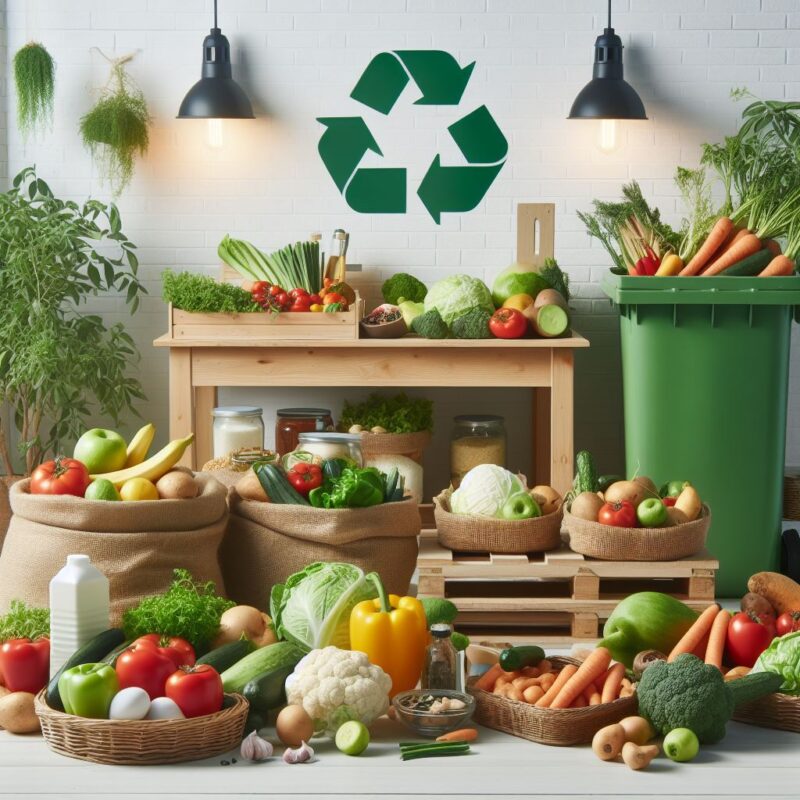Odour Management, Waste Management
Odour Management Solutions in Organics Recycling Facilities
Organics recycling is a sustainable and beneficial way to manage organic waste, such as food scraps, yard trimmings, and animal manure. However, one of the main challenges of organics recycling is the generation of unpleasant odours, which can cause nuisance and complaints from neighbours and regulators.
Odours are produced by the decomposition of organic matter, which involves various biochemical reactions and microbial activities. Depending on the type and composition of the feedstock, the oxygen level, the moisture content, the temperature, and other factors, different odorous compounds can be formed, such as ammonia, hydrogen sulfide, volatile organic compounds (VOCs), and mercaptans.
To prevent and control odours in organics recycling facilities, it is important to understand how and where odours are generated, how they are measured and perceived, and how they can be managed through good process control and technology.
Some of the best practices for odour management in organics recycling facilities include:
- Choosing appropriate feedstock materials and avoiding excessive amounts of nitrogen-rich or sulfur-rich materials that can produce more odorous compounds.
- Mixing and blending feedstock materials well to achieve a balanced carbon-to-nitrogen ratio, a suitable pH level, and a homogeneous texture,
- Maintaining adequate aeration and oxygen levels in the composting to avoid anaerobic conditions that can produce more odours.
- Monitoring and adjusting the moisture content and temperature of the composting or anaerobic digestion process to optimize microbial activity and prevent overheating or drying.
- Covering or enclosing the composting or anaerobic digestion piles or vessels to reduce odour emissions and contain them within a controlled environment.
- Applying surface treatments or compost caps on the composting piles or windrows to act as biofilters that can capture and degrade odorous compounds
- Installing misting systems such as Odagon or Mistral at the exhaust points of the composting or anaerobic digestion process to treat the odorous air before releasing it to the atmosphere.
One of the most effective and innovative solutions for odour management in organics recycling facilities is Odagon, a state-of-the-art equipment that combines advanced technology with natural ingredients to eliminate odours in a safe and efficient way.
Odagon is a device that can be easily installed at any organics recycling facility. It uses a process that generates a vapour from ambient air and injects it into a water stream that contains natural plant extracts.
The mist acts as a powerful oxidiser that breaks down the odorous compounds into harmless substances, while the plant extracts act as enhancers that increase the efficiency and speed of the oxidation process.
Odagon does not produce any harmful by-products or residues, as the ozone reverts back to oxygen and the plant extracts are biodegradable. Odagon is also energy-efficient.
Neusolutions offers more than equipment, but also a great service. When you purchase Odagon, you also get access to a team of experts who will provide you with technical support, maintenance, monitoring, and consumables.
If you are looking for a reliable, effective, and sustainable solution for odour management in your organics recycling facility, look no further than Odagon.
Odagon will help you improve your environmental performance, comply with regulatory standards, enhance your public image, and increase your customer satisfaction.
To learn more about Odagon and how it can benefit your organics recycling facility, visit our website at www.neusolutions.com.au or contact us at (02) 4355 4162. We will be happy to answer your questions and provide you with a free quote.
Don’t let odours stop you from organics recycling. Choose Odagon today and enjoy a fresh and clean environment tomorrow.

